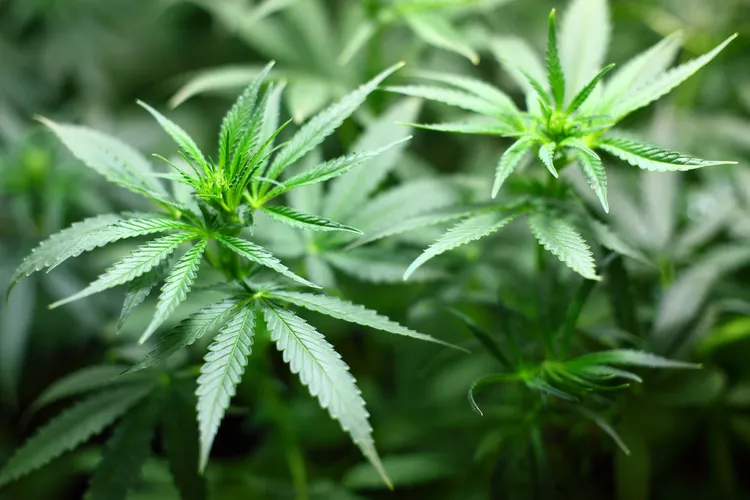Cats and Weed: Marijuana Toxicity in Cats

Marijuana is not safe for cats to consume in any form—not by nibbling on some dried pieces, inhaling secondhand smoke, snacking on an edible, or chewing on the leaves of the plant. While some cat owners may consider marijuana similar to catnip, they are not at all the same.
In households where there is marijuana present, residents should be informed of the health dangers that marijuana poses to cats.
Catnip and Marijuana
Catnip is a plant that comes from the mint family. The perennial herb has downy leaves, purple-spotted white flowers, and a pungent smell that makes cats go crazy when smelled and get sleepy when eaten. Marijuana, on the other hand, comes from a plant called Cannabis sativa. The chemical in Cannabis that produces the altered states of consciousness humans enjoy is called Delta-9 Tetrahydrocannabinol or THC.
Marijuana is sometimes prescribed for relief from pain and nausea due to chemotherapy in cancer patients and for certain conditions in AIDS patients. However, it's still questionable whether there is anything beneficial in the plant for feline friends. In fact, it is strongly suggested that cats do not come close to any smoke from marijuana use, or any other smoke from cigarettes, cigars, or pipes.
How Cats Are Exposed to Marijuana
The most common ways cats are exposed to marijuana is by inhaling smoke or ingesting dried marijuana. Although people who have experimented with smoking catnip become happy and relaxed, cats should not be forced to "smoke" any substance.
Because of the cumulative effects of inhaling any kind of smoke, it is inadvisable to smoke marijuana anywhere near a cat, particularly one with asthma or other lung diseases. It's important to be mindful of this: Humans can make educated decisions around topics like these, while cats cannot.
In some cases, cats may nibble on the leaves and/or buds of the growing marijuana plant. Humans may also feed their cats cookies or brownies made with marijuana. This is a double whammy of injury to the cat, as the brownies and/or cookies may also contain chocolate, which is toxic to cats on its own.
Symptoms
According to the American Society for the Prevention of Cruelty to Animals (ASPCA), your cat may experience extreme sleepiness or excitation, hypersalivation, dilated pupils, or low blood pressure. There may also be instances of low body temperature or even death (although it's rare). Additional symptoms most commonly observed include:
- Loss of coordination, falling over
- Depression, sometimes alternating with agitation or anxiety
- Vomiting
- Bradycardia (slow heart rate)
- Seizures, sometimes coma
If your cat demonstrates any of the symptoms above, you should take it to the veterinarian as soon as possible.
Warning
If you have reason to believe your cat was exposed to marijuana smoke or has ingested marijuana in any form, it's important to mention this to the vet. Quick treatment may ameliorate the most severe symptoms, and even save your cat's life.
Medical Marijuana for Painful Conditions
The American Veterinary Medical Association (AVMA) publishes several articles about marijuana treatments and drug monitoring programs for animals. One article tackled veterinary marijuana and pet owners who are looking to legalize marijuana for painful symptoms of the disease. The article quoted a woman who owned a 12-year-old Labrador retriever-type dog that had a tumor of the spleen metastasized to his liver and lungs. Unfortunately, the dog had been given two months to live, and the tramadol given for the pain was not doing the job. Of course, the poor dog was obviously in pain and completely inactive.
Because California legalized marijuana for humans, the dog's owner was able to buy a glycerin tincture of marijuana that's sold as a pet medicine in licensed medical marijuana dispensaries throughout Los Angeles. The dog's improvement in activity and the easing of pain was such that the pet owner recommended the drug to other dog owners.
Alternatives
Under the same circumstances, it's understandable that many pet owners wouldn't hesitate to give medical marijuana to their own cats if it were available in their state. Still, there needs to be more research and medicines available for cats experiencing pain.
Until it's legal for vets to prescribe cannabis to pets, they won't have the authority to prescribe the drug. Overconsumption of THC may also create serious health risks in cats. However, hemp-based treatments high in Cannabidiol (CBD) can help. With more research, we may discover a dosage that can help cats with conditions like Inflammatory Bowel Disease (IBD), pancreatitis, arthritis, asthma, and cancer.
Some vitamins and oils can act as a medication or supplement for your cat. Additionally, there are holistic and integrative veterinarians who can work with you to find the right product for your cat. Please consult your veterinarian before using any of these products.